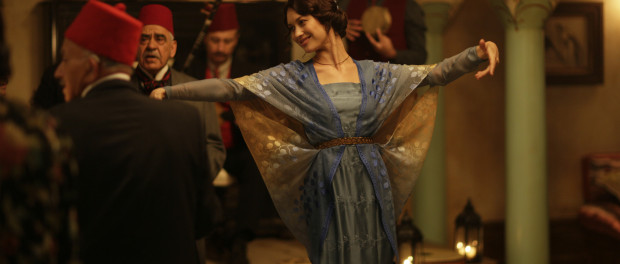The Water Diviner Lets Crowe Test His Hand at Directing
In his directorial premiere, The Water Diviner, Russell Crowe plays the role of an Australian farmer. The movie, a historical-fiction war drama, commemorates the nameless and lost soldiers of WWI, more precisely during the Battle of Gallipoli. Conveying the clear message that everyone suffers loss in war, Russell acts the role of Joshua Connor: a man who promises to bury his three lost sons next to the grave of his wife after she commits suicide due to the pain this war has caused her. “You’re so clever, you can find water, but you can’t find your own sons,” are a few of the last words she utters before passing away, setting a tone for what is to come.
We follow Connor as he goes in search of the bodies of his lost sons. His ability to find water and dig wells helps him locate where his sons might be buried in the wreckage created by the havoc of war. He is helped by a sympathetic Turkish officer (Yilmaz Erdogan) and encounters a wonderful woman (Olga Kuylenko) and her son, who both run a hotel where Connor lodges during his journey.
The film does a remarkable job at displaying the displacement, during the war, in Turkish lands as the British reigned; the Greeks continued to invade, and the Turks were told simply to sit idly as everything was taken from them. To make sure that we understand what the movie is about, we are constantly reminded that while we may have lost many of the men we sent over, they lost even more. For example, take this quote: “We lost over 2000 men in those four days alone, the Turkish over 7000. We did not take many prisoners. I don’t know if I forgive any of this.”
There are some interactions between the Turkish and the English, but the film takes neither to the right side or the left side, asserting a neutral stance. The movie makes sure to call everyone heartless bastards.
The movie is crafted with a multitude of layers. Religion is ever-present, as we are reminded twice that if you commit suicide you are not be allowed into heaven. But, racial prejudice is also brought to the foreground. Language barriers, religious establishments, rituals, and even breakfast are tools to stir and pick at the bad blood between people.
A powerful tool that engages an emotional reaction is the use of a story from 1001 Arabian nights. “And the prince closed his eyes and yelled ‘Tango.’ He sailed through the night to his father’s lands. When the carpet finally rested on the palace ground, the sultan fell to his knees and said ‘My son, my son…you’re home.'”
The movie has already managed to win Best Picture and two other Australian Academy Awards. Crowe won Best Actor from the Film Critics Circle of Australia. With this, we can only imagine what Russel will be able to produce next.







